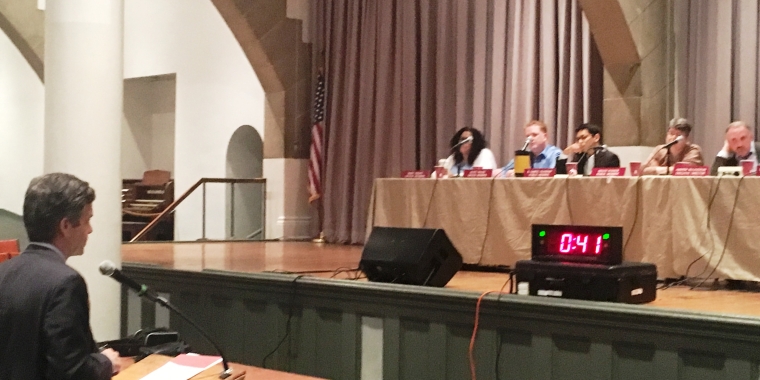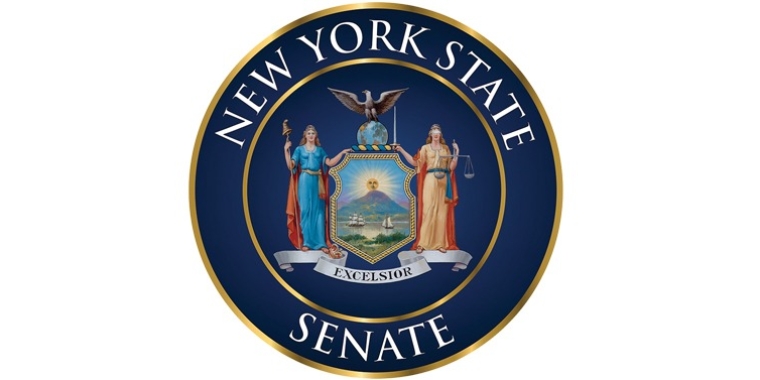
My Testimony to the New York City Rent Guidelines Board
June 23, 2016
-
ISSUE:
- rent laws

Thank you Chair Roberts and members of the Rent Guidelines Board (RGB) for the opportunity to submit testimony regarding the proposed guidelines for rent-stabilized apartments, lofts, and hotel units for leases renewing between 10/1/2016 and 9/30/2017. I represent New York State’s 27th Senate District, which includes the neighborhoods of Clinton/Hell’s Kitchen, Chelsea, Greenwich Village, the Upper West Side, Midtown/East Midtown, the East Village, and Lower East Side. This mixed income district is composed largely of tenants, thousands of them rent-regulated, both in small buildings and iconic rental complexes, including Stuyvesant Town-Peter Cooper Village, London Terrace Gardens, Westbeth, and Phipps Plaza. As such, these proposed rent guidelines are crucial to my district and, I believe, New York City as a whole.
Last year’s historic rent freeze was urgently important and a welcome, if brief, respite from the constant financial anxiety experienced by hard working New Yorkers. I was pleased to learn that once again, the RGB has suggested rent increases ranging from 0% to 2% for one-year leases, and 0.5% to 3.5% for two-year leases for rent-stabilized apartments. I thank you for standing up for my constituents and acknowledging the tremendous difficulties many face in making ends meet. I encourage you in the strongest possible terms to make history again and either issue our first ever rent rollback or, at minimum, renew the rent freeze and grant a 0% increase to all leases, including two-year renewals.
The RGB’s stated mission is to create price points that would be present if New York City’s rental market were operating under fair, free-market conditions. The line of demarcation for such conditions is considered a vacancy rate of 5%; vacancy rates below this threshold point to profound scarcity, which in turn creates a fundamental instability in the housing market. Given the City’s current rental vacancy rate of 3.45%, it remains necessary that the RGB act aggressively to correct this imbalance in a manner that supports the financial stability of working and middle class New Yorkers.
As you know, according to the 2014 Housing and Vacancy Survey (HVS), the most recent data available, the median income of rent-stabilized households was only $40,600 in 2013. Moreover, housing costs constitute a huge percentage of these tenants’ income. Housing is considered “affordable” to a family when it makes up no more than 30% of their income. According to the 2014 HVS, one third of renter households in the City (33.6 percent) paid 50 percent or more of their household income for gross rent.
While tenants are struggling, the RGB’s 2016 Income and Expense Study, which shows landlords of stabilized properties’ Net Operating Income (NOI) after all operating and maintenance expenses are paid, paints a rosier picture for landlords. This is the ninth consecutive year that NOI has increased, with Manhattan’s rising by 3.9%. Further, from 1990 to 2014, after adjusting for inflation, NOI has increased by a staggering 42.8%. In fact, the Price Index of Operating Costs (PIOC), which New York City uses as shorthand for the average expenses involved in maintaining a rent-stabilized building, officially decreased this year for a growth of -1.2% between March of 2015 and 2016. The data show that even for owners of rent-stabilized units, real estate in New York is a high growth industry – traded on the backs of New York City’s increasingly vulnerable poor and middle class.
Year after year the RGB’s own statistics do not support the landlords’ primary argument that increased rents are necessary to meet increased operating costs. An honest assessment of the real numbers shows not only that landlords can afford – and will still profit from – rents remaining constant, but also that most regulated tenants cannot afford any rent increases.
Therefore, I urge the RGB impose a rollback or, at minimum, a freeze on rents for all rent regulated apartments as well as for lofts, hotels, rooming houses, single room occupancy buildings, and lodging houses.
Thank you for the opportunity to testify before you today.
Share this Article or Press Release
Newsroom
Go to NewsroomLetter to Con Edison
March 26, 2025
Letter to Governor Hochul on Delaying CDPAP Transition
March 21, 2025
